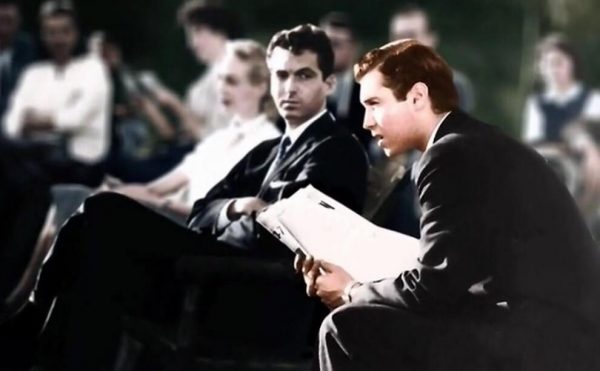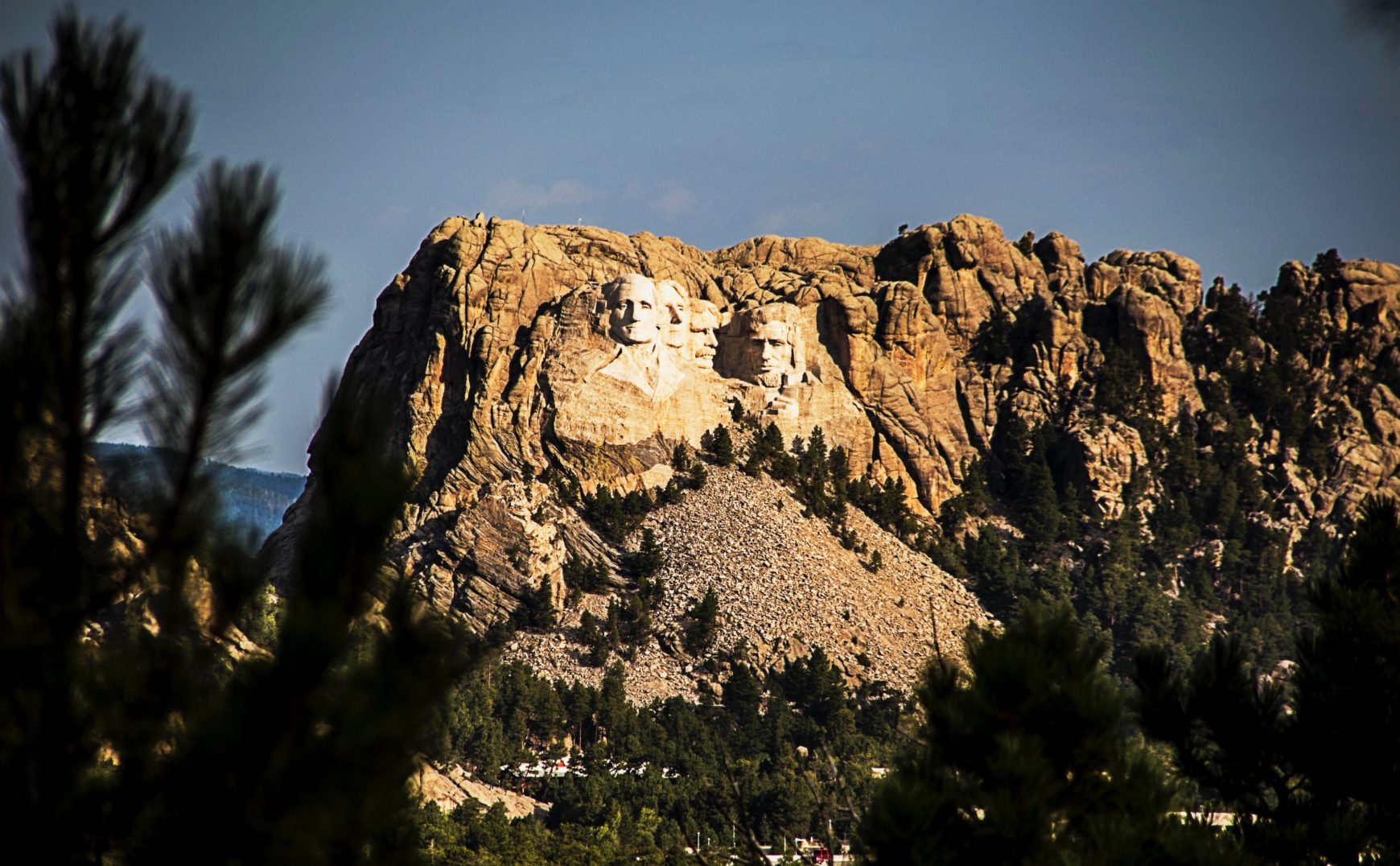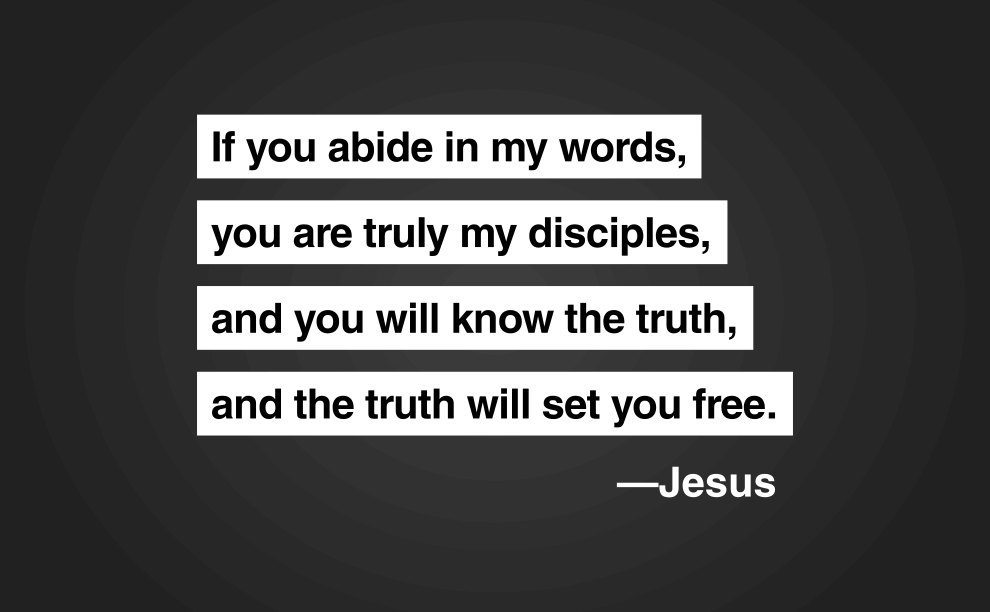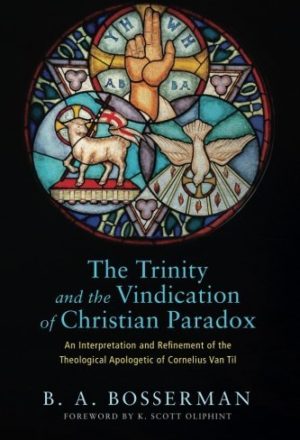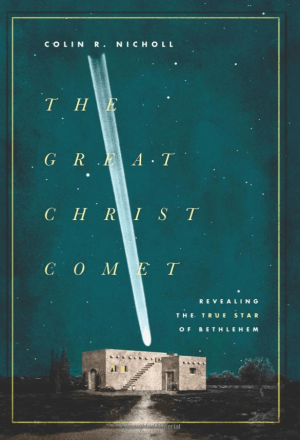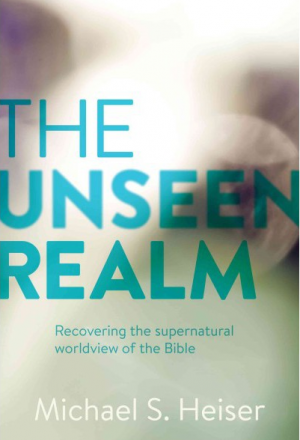“No one can serve two masters, for either he will hate the one and love the other, or he will be devoted to the one and despise the other. You cannot serve God and money.” —Jesus, Matthew 6:24
In my previous post, The Garden, Babel, and the Fall of the State, which I recommend reading first, I explain that the original intent for government was for God to be head of the state and rule with his divine council.1
The fall and its subsequent cascade of rebellion led God to disinherit all of the nations through His judgment over the Tower of Babel. Part of this judgment was the division of mankind into numerous nations, to which new spiritual heads of state, lesser gods of the divine council (elohim), were assigned according to the number of the Sons of God (elohim – Deuteronomy 32:8-9).2
This produced a tension that now exists within the nature of government. It operates both as an instrument of God’s common grace and goodness towards humanity (the original design) and as an instrument of judgment upon humanity for our rebellion. The original design of the state oriented people to worship God. Since God disinherited the nations at Babel, fallen states now promote false worship at the national level, oriented to lesser rebellious gods (elohim).
National idolatry is manifested in two primary behaviors: (a) the rejection of God and His commands and consequently (b) the worship and trust in earthly things instead of God. These behaviors multiply the size and power of states. For example, when enough people act unjustly (rebellion) in a certain manner, a law is passed and enforcement increased where before no law was necessary. When enough people value earthly things over God, the state will become the defacto ‘provider’ of these things at a heavy cost. How? By leveraging the idolatry within a nation, the state will multiply its size and power by mixing worship and commerce, thus promoting more idolatry. Money is at the heart of the idolatry spiral.
These practices are ancient and modern. In two ancient exmaples—Shinar and Egypt, the people lived in rebellion to God and trusted in things from the earth. A commercial entity operating with state backing (or as if it were an arm of the state) was able to leverage this idolatry within their respective nations as a means to take wealth and freedom from the people and divert it to the state. In our modern era, central banks operate similarly as a commercial entity with the state, but with a more realized collusion. These practices, in essence, are the means by which nations fund and promote idolatrous worship—they are bankrolling the gods.
Nimrod the Tyrant and Terah the Bankster
The Biblical account of how Nimrod funded the Tower of Babel is vacant, but other books of antiquity reveal clues as to how Nimrod might have achieved the building project.
After the flood, all eight people that came out of the ark worshiped God, but eventually someone defected and led others in to do the same. Genesis 10:9 tell us Nimrod “was a mighty hunter before the Lord”. The name ‘Nimrod‘ from the word ‘marad’ means ‘we will revolt’ and is likely a title rather than a proper name, who was also regarded as a “hunter of men”3 and a tyrant.4 The first recorded rebel after the flood was Nimrod and it’s worth noting that he precisely fits the profile of Gilgamesh, likely a Nephilim being described as part god (fallen elohim) and part man, recorded in ancient Sumerian, Babylonian, Assyrian, and Hittite writings.5 Josephus says this about Nimrod:
“He also gradually changed the government into tyranny seeing no other way of turning men from the fear of God, but to bring them into a constant dependence upon his own power.” —Josephus, Ant. I: iv: 2)
The Book of Jasher6 gives us an account of Nimrod in Chapter 7. He was a mighty hunter who succeeded in many conquests and was initially very well liked among the people. He grew in power to reign over all the sons of Noah. He also “rebelled against the Lord and taught all his subjects and the people of the earth his wicked ways”. Nimrod assigned Terah, Abraham’s father, as prince of Nimrod’s host and dignified him above all other princes. If Nimrod was the originator of the rebellion against God after the flood and Terah was his number one guy, it’s very likely two were united in promoting rebellion.
Nimrod’s primary goal in the rebellion was to build a tower:
“He [Nimrod] also said he would be revenged on God, if he should have a mind to drown the world again; for that he would build a tower too high for the waters to be able to reach! and that he would avenge himself on God for destroying their forefathers! —Josephus, Ant. I: iv: 2
Genesis 11:4 states “Then they [the people who settled in Shinar] said, ‘Come, let us build ourselves a city and a tower with its top in the heavens, and let us make a name for ourselves, lest we be dispersed over the face of the whole earth.'”
The Midrash Tanchuma states that Terah not only constructed idols (Lech Lecha, 2:3)7 and we know from the Bible that he worshiped them (Joshua 24:2), but also sold them (Bereishit Rabbah 38).8 It’s not difficult to imagine there may have been multiple idol sellers, but no other contextual figure in either texts is listed as such during this time except for Terah. He was at least the most prominent. Nimrod used his fame to seduce the people into rebellion, thus generating idol customers, while Terah collected wealth through the sale of idols, perpetuating the rebellion. Nimrod’s ability to bring the people into a constant dependence upon his own power was only made possible by a complicit idolatrous people, willing to purchase idols, who also wanted to make a name for themselves.
There is no explicit statement in antiquity that says Nimrod was using funds generated by Terah, his highest prince who was over his host, to fund the state for something like a tower building project, but it is plausible given Terah’s position within the kingdom. In this scenario, by operating as a commercial entity with the state to leverage idol worship, the nation was able to fund the tower and “make a name for themselves”. This method is similar to how a modern government-backed bank funds large government projects.
Trending
Rikayon, the First Pharaoh
The account of Rikayon in chapter 14 of the Book of Jasher tells us how he became the first Pharaoh of Egypt. Rikayon, who was also from the land of Shinar, was wise, beautiful in appearance, but poor and therefore highly motivated to change his position. He resolved to go to Egypt and gain an audience with the king with the hopes of proving his wisdom and worth with the goal of obtaining a seat in the king's court. He discovered that the king of Egypt would only leave his royal palace to be seen once a year and this was also the only time the king issued judgments concerning anyone who had a suit. After passing judgments for the day, the king would return to his palace until the next year.
Distraught by the lack of opportunity to gain an audience, he pivoted to a vegetable selling business, but failed due to his cultural ignorance. He then came up with an "ingenious" idea. It's well established from written and archaeological records from 4500 BC that Egyptians for 5000 years believed the burial process was of tantamount importance to ensure their dead would transition to the afterlife. They believed the dead required specific rites and spells to be performed as well as resources to be buried with them.9 Like all rebellious people, they set their hope in things from the earth instead of God in Heaven.
Rikayon, without authorization under any color of law, unilaterally hired mercenaries to guard the Egyptian sepulchre, prohibiting everyone from burying their dead without first paying 200 pieces of silver. After eight months, Rikayon became extremely wealthy while all the people of Egypt became extremely upset because he was impinging on a fundamental way of their life.
When the annual time for the king to hear lawsuits came around, all the people gathered to express their disdain for Rikayon. The king, burning with anger at the hearing, summoned Rikayon.
In response, Rikayon sent many lavish gifts and gold and had them presented before the king which greatly pleased him. Clearly, Rikayon (knowing the king's method of dispensing justice once per year) planned for this eventuality. Then Rikayon came before the king and "spoke all his words wisely" earning him grace. Seeing how very shrewd Rikayon was, the king renamed Rikayon to Pharaoh and made him prefect over the whole kingdom.
Rikayon, operating in effect, as a government-backed commercial entity, extorted the Egyptians by using their own idolatry against them to obtain their wealth. Through the issuance of kickbacks to the state, he earned its favor and became the ruling authority. Rikayon's first actions expanded government by issuing daily judgments and exacting taxes.
The widespread Egyptian idolatry enabled Rikayon to mix religious worship and commerce not only to achieve government-backing, but to usurp and expand it while the Egyptians paid the price. The Book of Jasher concludes the chapter with the statement "Therefore all the kings that reigned in Egypt from that time forward were called Pharaoh unto this day."
A subtle conclusion here is that from this time forth, the power to rule and govern became synonymous with banking power because the name previously applied to Rikayon as the king's prime minister became the name by which not only all later prime minsters were known, but by which all kings were known. The king and the bank were necessarily one and the same.
Jesus Condemns the Mixing of Commerce and Worship
In multiple Gospel accounts (Matthew 21:12-13, Mark 11:15-18, John 2:15-17) Jesus entered the temple and drove out all the merchants and livestock and overturned their tables as they were capitalizing on the needs of the people to obtain animals for sacrificial worship requirements. It's not a stretch to imagine they were exploiting the people with price gouging. More importantly, the complicit people had turned the temple into a "den of robbers" through commerce, sanctioned by the religious ruling Pharisees (the state), a reflection of money idolatry.
In the Matthew 6:24 quote at the beginning of this article, the word Jesus used that we translate to "money" is mammon. It's worth mentioning that its general use was the personification of riches as an evil spirit or deity.10 The idolatry wasn't that merchants wanted to sell goods for profit, it was the context of leveraging worship as a means to profit. The merchants were potentially entertaining a fallen god in the temple, which is maybe a reason why Jesus responded so violently—table flipping and all. Like Nimrod, Terah, and Rikayon, the merchants leveraged worship for money and it still happens today.
The Commercialization of American Money-Idolatry
At some point between the time of the puritans and today, the pursuit of the wealth has eclipsed liberty, virtue and sacrifice to arguably become the highest moral code in American culture. One can walk into a book store and now find materials on business management under the New Age and Christian Life sections. American values represent themselves in books on spirituality, health, wealth, and career growth that have become homogenized into the a false pseudo-Christian money-front religious idolatry, realized in the pervasive prosperity (false) gospel that has a strong foothold in American life.
The new marketing fad is to be a guru on social media with numerous ad videos that feed viewers a spiritualized message claiming their program would make you a better you via the accumulation of wealth. Similar messages that intertwine spiritual and economic growth are preached in churches, in media, and in multi-level-marketing schemes unfortunately too common among Christians.
The Militarization of American Money-Idolatry
On the national level, economic growth has arguably become the primary American idol, evidence by 100+ years of American monetary imperialism. Since the advent of the central bank, the Federal Reserve has been able to artificially inflate the money supply in a coordinated effort, which takes wealth from the people, harming the lower classes the most, to fund large government operations. Instead of building a tower to "make a name for ourselves", America goes to war to create new investment opportunities and further establish world currency dominance.11
The commercialization of wealth-worship perpetuates American wealth-idolatry and our state is happy to provide the means of ongoing economic growth to feed it at the expense of poorer citizens and poorer nations. After 100+ years, the American military industrial complex is stunning colossus of state power that we ignorantly nourish through our wealth-idolatry. America didn't start out this way. Written on board the “Arbella,” on the Atlantic Ocean on his way to the new world, the puritan John Winthrop wrote:
"...the care of the public must oversway all private respects, by which, not only conscience, but mere civil policy, doth bind us. For it is a true rule that particular estates cannot subsist in the ruin of the public." A Model of Christian Charity, 1630
Winthrop did not advocate a civil policy to eradicate the poor, but believed "All men being thus (by divine providence) ranked into two sorts, rich and poor," and therefore exhorted, most especially to those within the faith, to lovingly move towards one another with justice and mercy in hand, regardless of economic position. Our bookstores do not reflect section names that advocate such values.
Conclusion
By leveraging the idolatry within a nation, whether in ancient or modern times, the state will multiply its size and power by mixing worship and commerce, thus promoting more idolatry. It requires an ignorant population complicitly motivated by a false hope grounded in what the earth can offer instead of God above. The result of this idolatry is a slow and subtle enslavement of the people as the state increases. It's arguable from my previous post that every nation is a theocracy, oriented around a false god making false promises to increase their stature realized in the state. It's no coincidence that the Federal Reserve building in Washington DC is nicknamed "The Temple". Our real hope is in God above, who sent His Son, Jesus, to die in our place, take away our sins, to eventually shoulder all government, who has an endless supply of resources (Psalm 50:10), who sacrifices for us, and who's increase of wonder, might, and peace is never ending (Isaiah 9:6-7).
References:
- Heiser, Michael S. "The Unseen Realm: Recovering the Supernatural Worldview of the Bible." Lexham Press, 2015, 32.
- Heiser, 112.
- Keil, C. F., and Delitzsch, P. "Commentary on the Old Testament, vol. 1." Grand Rapids: Eerdmans, 1975.
- Livingston, David, PhD. "Who Was Nimrod?." Bible Archaeology, October 30, 2006. http://www.biblearchaeology.org/post/2006/10/30/Who-Was-Nimrod.aspx. Accessed June 30, 2018.
- Livingston.
- "The Book of Jasher, Referenced To In Joshua and Second Samuel." Noah, M. M. & Gould, A. S., 1840, New York. Accessed from Harvard University scans and Sacred-Texts on July 5, 2018.
See The Book of Jasher, Josephus and The Midrash Tanchuma in the sidebar on this page (or below the article on mobile devices). - "Midrash Tanchuma." Sefaria. https://www.sefaria.org/Midrash_Tanchuma%2C_Lech_Lecha.2.3?ven=Midrash_Tanhuma-Yelammedenu,_trans._Samuel_A._Berman&lang=bi&with=all&lang2=en. Accessed on July 10, 2018.
See The Book of Jasher, Josephus and The Midrash Tanchuma in the sidebar on this page (or below the article on mobile devices). - "Midrash Tanchuma." https://www.sefaria.org/Midrash_Tanchuma_Buber%2C_Lech_Lecha.2?lang=bi. Accessed on July 10, 2018.
- Maitland, Dr. Margaret. "Seeking eternity: 5,000 years of ancient Egyptian burial." HistoryExtra, January 27, 2017. https://www.historyextra.com/period/ancient-egypt/seeking-eternity-5000-years-of-ancient-egyptian-burial/. Accessed on July 12, 2018.
- Draper, Charles W., Brand, Chad, & England, Archie. "Holman Illustrated Bible Dictionary." Holman Reference, October 2003.
- Balloun, Chevas A. F. & Aurelius. "A Primer On Central Banking and American Monetary Imperialism." Gospel Vision, July 24, 2018. https://gospel.vision/a-primer-on-central-banking-and-american-monetary-imperialism/.
- Trimm, James. "Is There A Genuine Book of Jasher?" Nazarene Space, December 31, 2009. http://nazarenespace.ning.com/group/bookofjasher/forum/topics/is-there-a-genuine-book-of. Accessed on July 25, 2018.
See The Book of Jasher, Josephus and The Midrash Tanchuma in the sidebar on this page (or below the article on mobile devices).







